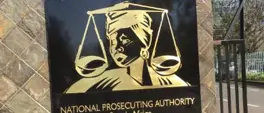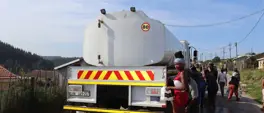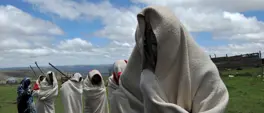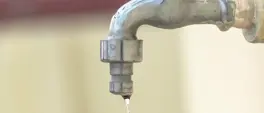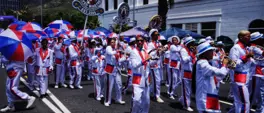Competition Commission recommends Google pay SA media between R300-500 million annual fee
Nokukhanya Mntambo
24 February 2025 | 16:20The commission set up an inquiry at the end of 2023 following concerns that some market features in digital platforms that distribute news media content might restrict, distort, or impede competition.
JOHANNESBURG - The Competition Commission has recommended that global tech giant Google pay South African media a hefty R300-500 million annual fee to compensate local companies for using their content.
The commission set up an inquiry at the end of 2023 following concerns that some market features in digital platforms that distribute news media content might restrict, distort, or impede competition.
16 months after its probe, the watchdog released its provisional report on the media and digital platforms market inquiry on Monday.
In its findings, the Competition Commission said global digital platforms are diverting web traffic from news outlets to their own services.
The Google algorithm distorts competition between news media organisations insofar as it overrepresents global news media in SA for search and top stories, underrepresents vernacular and community media, and over-represents subscription publishers. Furthermore, Google appears to self-preference YouTube links on the SERP and discover feeds relative to links to third-party video providers, including SA news broadcasters. These issues are exacerbated by search engine optimization (SEO) requirements for the algorithm and for core updates to the algorithm where there is insufficient transparency on how the media will be affected and how to avoid traffic loss.
READ: Competition Commission says tech companies continue to undercut SA's media
"The evidence also indicates that users consume news on the search engine results page or click through to YouTube for news videos, resulting in less than half the news queries resulting in clicks to news websites that generate revenue for the news media," said media veteran and panelist on the inquiry, Paula Fray.
Google’s monopoly position and the unequal bargaining position of the media means there has not been an equitable share of value between Google and news publishers in South Africa both historically and currently. This inequity has materially contributed to the erosion of the media in SA over the past fourteen years and will continue to do so unless remedied. The inquiry has used a variety of measures to determine the additional value extracted by Google search annually from publishers, or value destroyed through conduct that promotes zero-clicks, resulting in a range of estimates from R300 -500 million for 2023. The value will be higher today
Beaten by optimisation mechanisms that benefit big tech more, a drop in revenue for local media spells trouble for their survival.
Reducing revenues for publishers has necessitated large-scale cost-cutting by the news media, focused in particular on staffing costs.
The commission has made a number of recommendations to help create an equal playing field, including up to half a billion rand paid by Google to local news.
The compensation can include funding support for projects that build digital news capabilities with the objective of improving revenue generation, but the majority of funding must be transferred to support and strengthen journalism.
READ: SANEF urges Competition Commission to ensure SA media houses are paid fairly for content
If the search engine fails to implement this recommendation, the inquiry’s chairperson and watchdog’s chief economist James Hodge says it won’t leave it at that.
"It is recommended that a 5-10% digital tariff or levy on digital advertising revenues is imposed if the search engines (i.e. both Google and Bing) fail to implement the remedial actions identified above.”
The Competition Commission wants the revenues to be placed in a media industry fund to be distributed to the news media based not only on relative content levels but also on relative needs and contributions to media diversity.
Get the whole picture 💡
Take a look at the topic timeline for all related articles.
